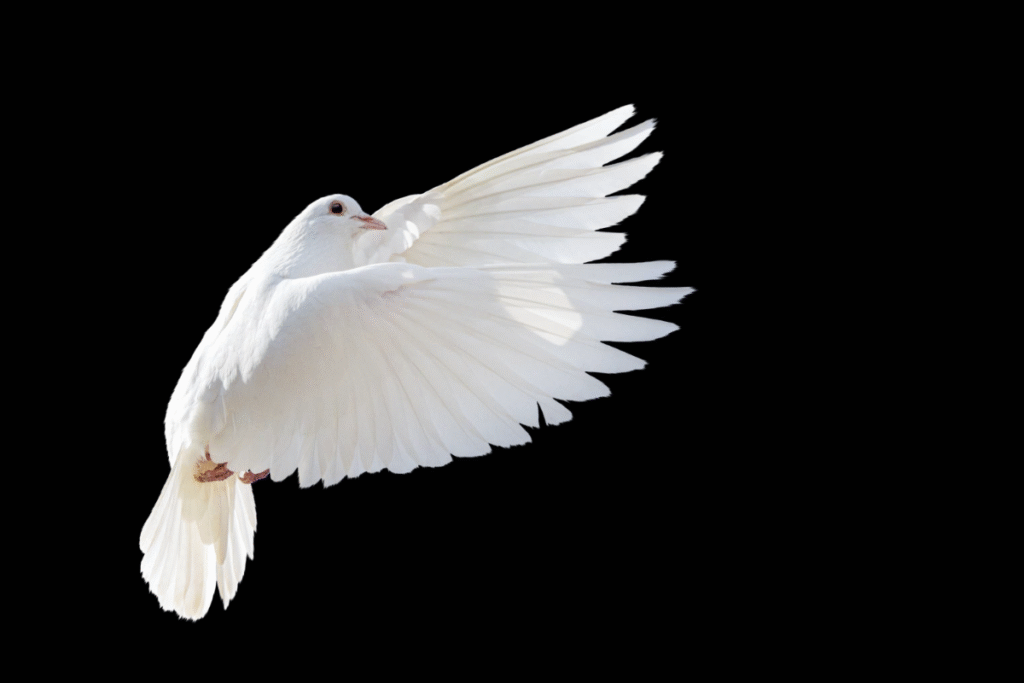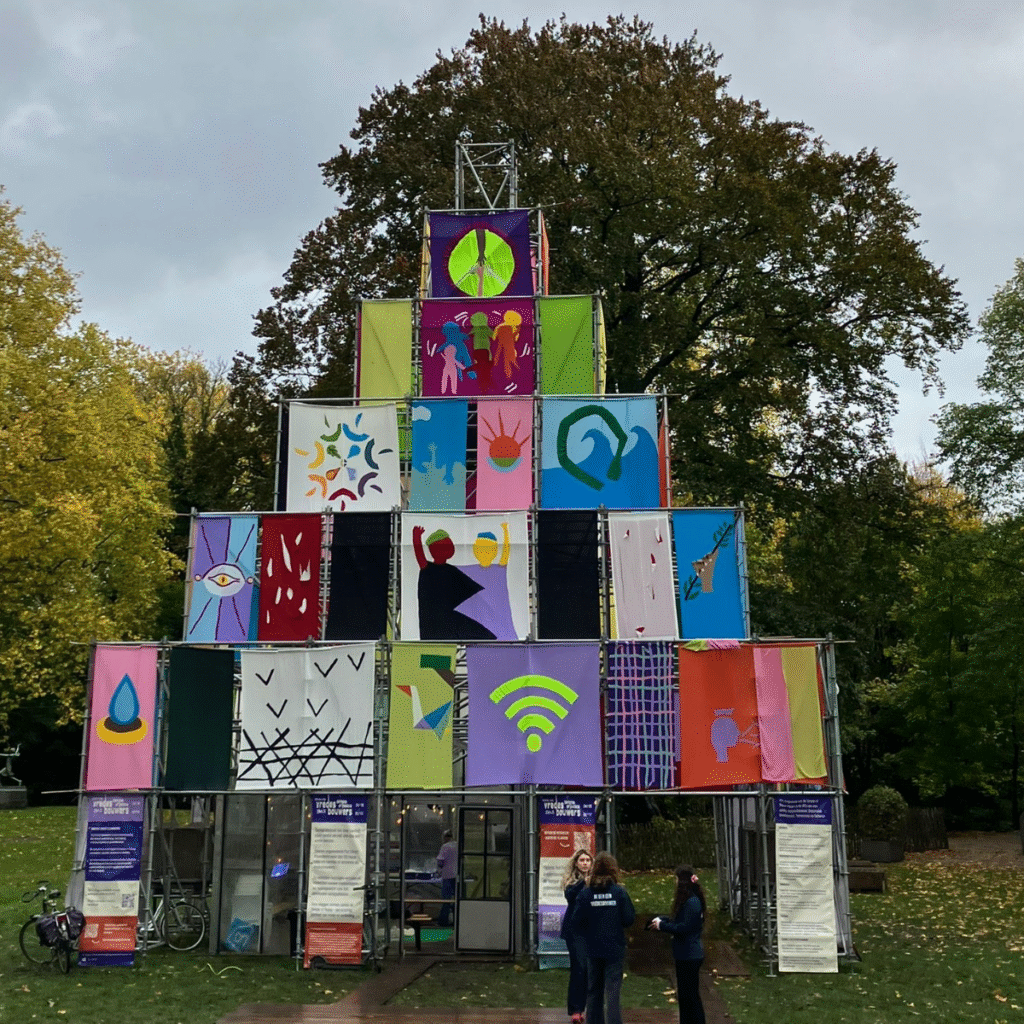Thinking as Resistance
Hannah Arendt and Albert Camus offer valuable insights for understanding these challenges. Their thinking invites both reflection and action – resistance and solidarity in times of crisis.
Both philosophers reject a fatalistic view of crisis and emphasize human freedom, responsibility, and solidarity as a response to existential and societal challenges.
During this colloquium, we will explore how Arendt and Camus can help us understand today’s crises and engage with them actively.
Thinking is understood here as a form of resistance: a conscious choice not to give in to powerlessness, but to search together for justice and meaning.
Topics and Speakers
The programme consists of lectures and reflections in the morning and afternoon, concluding with panel discussions that allow for audience interaction.
The morning session focuses on the concept of ‘crisis’, in the afternoon, we turn to ‘revolt’ and the possibilities for action and hope.
Crisis as a Time for Political Renewal
An Dufraing is a doctoral researcher at the University of Antwerp.
In her presentation, she will examine how the concept of crisis has been shaped by an interpretation of history that emerged in modernity, and how this has contributed to the depoliticization of contemporary experiences of crisis. Drawing on Hannah Arendt, she will show how crisis can actually be a moment of political reflection and renewal, rather than paralysis and fatalism.
Social Media and the Depoliticization of Crisis
Anthony Longo is a postdoctoral researcher at Tilburg University.
He will discuss how the contemporary discourse around social media exemplifies what Hannah Arendt describes as the ‘depoliticization of crisis.’ He shows how the so-called algorithmic crisis paradoxically reveals the political capacity for renewal that Arendt emphasizes, as users creatively appropriate algorithms and thereby create new public spaces.
The Heroism of Moderation: Crisis and Excess
Jozef Waanders is Senior Strategist at the Dutch Ministry of Foreign Affairs, editor-in-chief of Filosofie-Tijdschrift (Philosophy Magazine) and chair of the Erasmus Fund.
In his lecture, he highlights how Albert Camus’ thinking on ‘keeping measure’ – his héroïsme de la mesure – can help us understand contemporary crises as expressions of excess.
Drawing on Camus’ ethics of limits and simplicity, he explores how this philosophy offers an alternative to violent or dogmatic responses to the absurdity of existence, and how it invites a balanced and humane form of resistance.
Crisis as a Political and Existential Challenge
Lara Dutry is a teaching assistant at the Faculty of Arts at KU Leuven Kulak, a language instructor at the Institute for Living Languages, and an author.
In her contribution, she examines how Albert Camus approaches the concept of ‘crisis’ as both a political and existential challenge. Drawing on his movement from individual struggle to shared humanity, she shows how Camus’ thinking can help us understand contemporary crises—from climate change to democracy—as moments of collective reflection and engagement.
Civil Disobedience as Revolt
Bernard Hubeau is professor emeritus at the Faculty of Law and the Faculty of Social Sciences at the University of Antwerp, guest lecturer at the Faculty of Law and Criminology at the Vrije Universiteit Brussel, author and co-chair of Grandparents for the Climate.
In his contribution, he will address civil disobedience as a form of revolt, with particular attention to climate activism and the question of a moderate, non‑destructive approach. He examines how this form of action is evolving from a liberal to a radical‑democratic interpretation, aimed at deepening democracy. Drawing on Albert Camus, revolt is understood as an ethically responsible struggle for justice and freedom, which focuses on the concrete individual and their dignity.
Just Climate Revolt
Herbert De Vriese is an associate professor in the Department of Philosophy at the University of Antwerp and an author.
His contribution engages with the theme of climate activism and revisits the question of whether Albert Camus’ thought can teach us something about the form and conditions of a just ‘climate revolt’.
Revolt Against Frozen Ways of Thinking
Geert Van Eekert is professor in the Department of Philosophy at the University of Antwerp and an author.
In his contribution, he will address Hannah Arendt’s revolt against thinkers who turn away from the world and ignore the political sphere, as well as against thoughtlessness manifested in both evil and the superficial language and theoretical emptiness of protest movements. Arendt criticizes the inability or refusal to truly think and judge reality. Especially in times of crisis, she argues, thinking requires courage: the courage to let go of familiar concepts and to arrive at a judgement without solid ground.
The Tension Between Thought and Action
Allegra Reinalda is a doctoral researcher at KU Leuven and an author.
In her contribution, she will address the role of intellectuals in contemporary politics from an Arendtian perspective.
She explores how Hannah Arendt’s distinction between the vita activa and the vita contemplativa can help us understand and appreciate the political engagement of modern intellectuals.
Drawing on Arendt’s historical analysis of different types of thinkers – the philosopher, the intellectual, the homme de lettres, and the professional revolutionary – she argues that this typology offers insight into the tensions between thought and action, and thereby into the contemporary position of intellectuals in public debate.
The Moderator
Els Van Peborgh holds a PhD in philosophy, is an actress and a teacher at the Academy of Music and Word in Borgerhout. She will moderate the discussions during the colloquium.
Programme
Welcome and Introduction
9:30 am
Arrival and Coffee
9:45 am
Welcome by Erik De Bom, Acting Director of UCSIA
Erik De Bom welcomes you to this colloquium, an event of the UCSIA Solidarity Academy.
9:50 am
Introduction by Moderator Els Van Peborgh
Moderator Els Van Peborgh presents the theme and goes over the programme.
Morning Lectures: ‘Understanding Crisis
10:00 am
Crisis Without Judgement: Arendt and the Depoliticization of Crisis in Modernity – An Dufraing
This presentation examines how the concept of crisis has been shaped by an interpretation of history that emerged in modernity, and how this has contributed to the depoliticization of contemporary experiences of crisis.
Where modern historiography situates crisis within a narrative of continuous progress, Hannah Arendt shows that a crisis in fact constitutes a rupture between past and future. It is a moment in which existing meanings lose their validity and new judgements become necessary.
Arendt shows that a crisis must always be understood as an opportunity for political reconsideration and renewal. In this way, it becomes clear how modern crisis discourse, rather than encouraging political action, often fosters paralysis and fatalism. Arendt can help us break through this impasse and rethink crisis as a political space.
An Dufraing is a doctoral researcher at the University of Antwerp.
10:30 am
Response – Outside the (Black) Box: Beyond the Crisis of Social Media – Anthony Longo
This response reveals how contemporary discourse on social media exemplifies what Arendt describes as the ‘depoliticization of crisis.’ The dominance of algorithms on social media is often presented as a ‘crisis of judgement’ due to their opaque functioning as a ‘black box’.
Societal responses fluctuate between fatalistic defeatism (‘politics is lost’) and the urge for nostalgic restoration (‘restore old ideals in design’). Both reactions seek solutions in the past, and in doing so overlook how users are already creatively engaging with algorithms for political expression.
Through this appropriation, new forms of public spaces emerge in which collective responses to social issues take place. In this way, the so-called algorithm ‘crisis’ paradoxically reveals the ongoing capacity for political renewal that Arendt places at the centre.
Anthony Longo is a postdoctoral researcher at Tilburg University.
10:45 am
Camus on Crisis and Excess: What Might a Contemporary ‘Héroïsme de la Mesure’ Look Like? – Jozef Waanders
Keeping measure is an important theme in Camus’ (ethical) thought. The ‘clear-sighted thinking’ – or La pensée de midi – refers not only to the clarity of the southern midday, but also to the recognition of a limit, as clearly emphasized in Greek thought according to Camus.
In Camus’ broader philosophy, this measure must keep the revolt against the absurdity of existence in check and prevent it from derailing into a violent and dogmatic revolution.
Conversely, in Camus’ philosophy, excess is the original sin against life. In revolutionary thought, excess ultimately turns against life itself. A person striving to be God will eventually turn against his fellow human beings, and a political system that seeks to become a religion resorts to the Inquisition. Camus is always in search of a ‘héroïsme de la mesure’: a heroism of moderation, of simplicity, of relative rebellion, of balance.
For Camus, excess is therefore a crisis in human existence. And many of the crises we struggle with today (such as the climate crisis, the ecological crisis, the growing inequality as a crisis of capitalism, the crisis of trust, and the democratic crisis) can be understood as contemporary manifestations of excess. If we try to view the crises we face through this lens, what might a contemporary ‘héroïsme de la mesure’ look like?
Jozef Waanders is Senior Strategist at the Dutch Ministry of Foreign Affairs, editor-in-chief of Filosofie-Tijdschrift (Philosophy Magazine) and chair of the Erasmus Fund.
11:15 am
Response – Camus and the Crisis of Human Existence – Lara Dutry
In Camus’ thought, the concept of ‘crisis’ is illuminated from all angles. In his work, he dissects not only the numerous and excessive political crises of his time, but also but also those of the individual who must endure them.
Is humanity in crisis? What does it mean to be (and remain) human in a context of radical change and disruption? Is there still such a thing as meaning in a world that seems devoid of meaning? And within this broader human crisis, is it still possible for us to find one another again, and to regard the human condition as a shared condition?
In his search for a possible answer to these questions, Camus makes a clear movement from individual struggle to shared struggle: from Sisyphus, the absurd hero, to the human being in revolt, as a human among humans. Je me révolte donc nous sommes, Camus writes: I revolt because we are. It is from this shared humanity, Camus argues, that man must act, thereby providing a counterweight to the latent nihilism and fatalism.
That line of reasoning also finds clear echoes in today’s world. The larger crisis in the human condition that Camus experienced and analysed in the twentieth century seems anything but resolved in 2025. How can his thought help us to better understand the existential questions of our time, and offer us guidance for acting-in-crisis today — from climate activism to civic engagement, and from small acts of resistance to larger forms of protest?
Lara Dutry is a teaching assistant at the Faculty of Arts at KU Leuven Kulak, a language instructor at the Institute for Living Languages, and an author.
11:30 am
Coffee break
12:00 noon
Panel Discussion with the Speakers from the Morning Session
An Dufraing, Anthony Longo, Jozef Waanders, Lara Dutry
There will also be time for questions and reflections from the audience.
1:00 pm
Lunch break
Afternoon Lectures: ‘Thinking as Revolt'
2:00 pm
Albert Camus on Revolt as a Response to the Polycrisis: Can ‘Moderate’ Civil Disobedience Offer Solutions? – Bernard Hubeau
Civil disobedience is a form of revolt. Climate change is one of the issues for which activists choose this mode of action. The question, however, is whether this poses a threat to the broader public support for such an approach.
Is a moderate form of civil disobedience therefore not called for—one that does not become destructive itself? What does this mean in concrete terms? And is the liberal conception of this form of revolt as an individual or collective act of resistance against injustice not evolving towards a radical-democratic interpretation, in which this mode of action is employed to “democratize democracy“?
How does this fit within Camus’ thought? Does he have an answer to everything? Of course not, but we can learn a great deal from his vision of revolt and revolution. According to him, there is first a solitary, individual, metaphysical revolt against the absurdity of existence, which then evolves into a collective, social revolt in solidarity against injustice.
Justice and freedom cannot be realized without revolt, he argues. He sets out a number of ethical requirements: revolt must not culminate in a revolution or a totalitarian regime that pursues a (future) ideal at the expense of the concrete individual and his dignity.
For Camus, as an intellectual of his time, thinking itself is already a form of revolt, through his writing and engagement, both literary and in essays.
Bernard Hubeau is professor emeritus at the Faculty of Law and the Faculty of Social Sciences at the University of Antwerp, guest lecturer at the Faculty of Law and Criminology at the Vrije Universiteit Brussel, author and co-chair of Grandparents for the Climate.
2:30 pm
Response - On the Changed Climate of Metaphysical Revolt – Herbert De Vriese
This reflection engages with the theme of climate activism and revisits the question of whether Camus’ thought can teach us something about the form and conditions of a just ‘climate revolt’.
Herbert De Vriese is an associate professor in the Department of Philosophy at the University of Antwerp and an author.
2:45 pm
Hannah Arendt’s Contrarian Thinking – Geert Van Eekert
Hannah Arendt revolts not only against professional thinkers who turn away from the world and abandon the political sphere of human affairs. She also revolts against the thoughtlessness, which manifests itself not only in evil, but also in the ‘catchwords’ of political protest movements, the theoretical sterility of their analyses, and their inability or refusal to reflect on and to judge ‘what is’.
Especially in times of crisis, thinking requires the courage to let go of old concepts and to make a judgement without solid ground. Arendt’s revolt against frozen ways of thinking emerges throughout her writings, but is perhaps most clearly evident in the interviews she gave to Günter Gaus, Joachim Fest, and Adelbert Reif.
Geert Van Eekert is professor in the Department of Philosophy at the University of Antwerp and an author.
3:15 pm
Response – Thinkers and Thinking: An Arendtian Perspective on Intellectuals in Politics – Allegra Reinalda
Nowadays, many intellectuals can be found at protest marches or in the media as opinion makers preaching revolt. Their signatures circulate on countless petitions, and pressing social issues take centre stage in academic journals and at conferences.
With Arendt, we can question the meaning and value of the political engagement of today’s professional intellectuals. Through her study of the vita activa and the vita contemplativa, Arendt was particularly sensitive to the gap between a life devoted to thinking and a life devoted to politics.
The tension between thought and action is further elaborated in her historical treatment of different types of thinkers: the philosopher, the intellectual, the homme de lettres, and the professional revolutionary. On the basis of an analysis of these, I propose, we can better understand the contemporary engagement of intellectuals.
Allegra Reinalda is a doctoral researcher at KU Leuven and an author.
3:30 pm
Coffee break
4:00 pm
Panel Discussion with the Afternoon Speakers
Bernard Hubeau, Herbert De Vriese, Geert Van Eekert, Allegra Reinalda
There will also be time for questions and reflections from the audience.
5:00 pm






